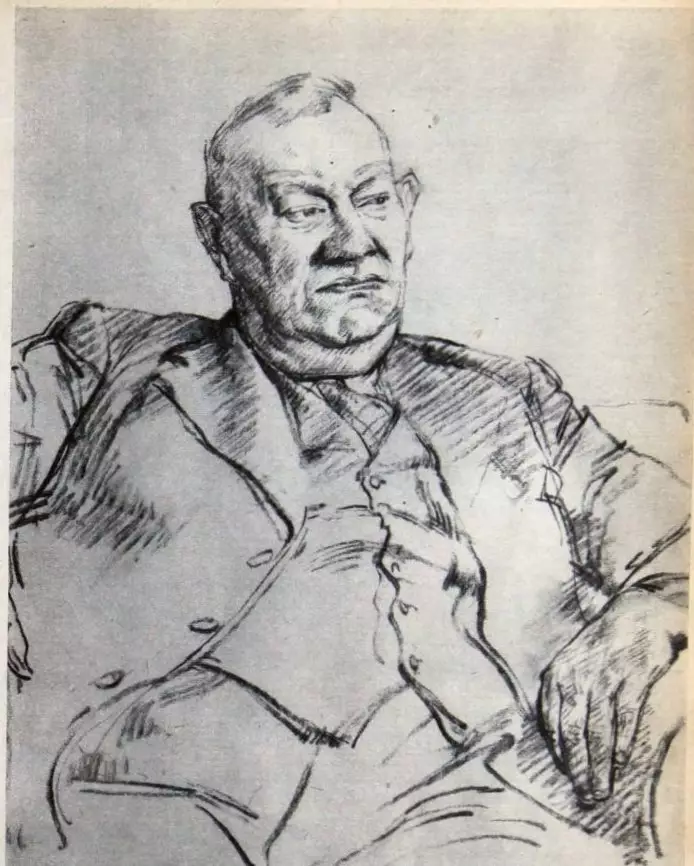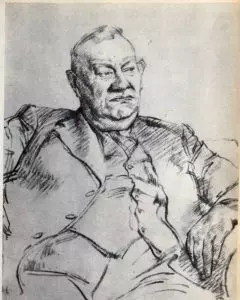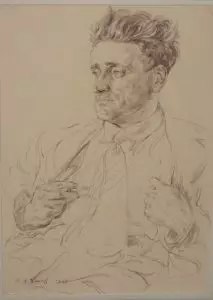
Andrew Freeth
These profiles are by an artist called H. Andrew Freeth (1912 – 1986). Freeth was particularly interested in working miners. He was born in Birmingham in 1912 and studied at the School of Art (1929 – 1936) in his home city. He received an engraving Scholarship to the British School in Rome, where he stayed for three years and later became a war artist during World War II. After the war, the National Coal Board commissioned Freeth to create works about miners, partly because of his success with images of Black Country people.
The two profiles displayed here are drawings of Matthew March and Jim Hammond. They both worked a variety of roles in two different areas of the country.
Matthew March

Matthew March was born in Dudley, West Midlands. He started working on the pit bank aged thirteen and two years later he went underground as a Trapper boy. In 1906 he worked on the face and later he worked on many different committees including the N.U.M. County Committee.
Interview extract
“One thing I can say,” he said, “I’ve had a good class of men to deal with. It’s made me put my whole life in. I’ve been exceedingly well treated by the men of this colliery and the miners in the whole of the county. It’s been a pleasure to work for them. One criticism I’ve got to make. The young men should take more interest in social affairs. They’re leaving it all to older men and when their elders die off there’ll be nobody to fill their places.”
Jim Hammond, President of Lancashire area of N.U.M.

Jim Hammond worked in the pit from the age of thirteen for eleven years, leaving when he was twenty-five. He returned to the mines when World War II broke out and became a collier for fifteen months. In May 1942 when Hammond was thirty-four, he was elected a mining agent and in 1946 he was appointed President of the Lancashire area of the National Union of Mineworkers (N.U.M).
Interview extract
He has great faith in the mining industry and in nationalisation. “There will be many problems to solve,” he says, “many growing pains, but there is no progress without problems: there is no such thing as finality. You either progress or you retrogress, and to progress you must always be grasping the next link in the chain. Our attitude now is different from when we were striving for power; now nationalisation is an established fact it is our job to do things better than those from whom we have taken over. Many men who suffered ostracism in the past are fighting most resolutely at the present time for full production and against frivolous strikes.”
Researched and written by Matthew Shackleton, NCMME Volunteer.